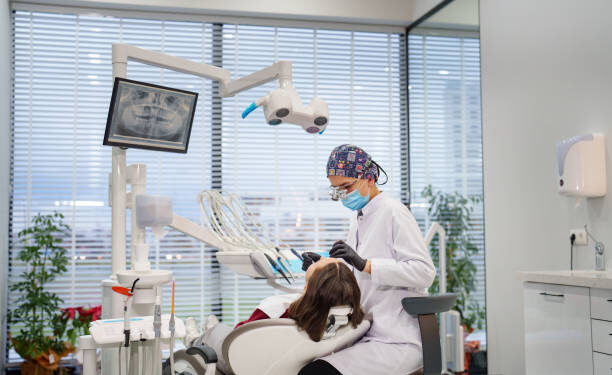Dentistry is evolving at a rapid pace, driven by advancements in technology and innovative approaches to patient care. These changes are not just improving the quality of treatments but are also redefining how patients experience dental care. From cutting-edge diagnostic tools to sustainable practices, the industry is embracing the future with open arms. Below, we take an in-depth look at how these innovations are shaping modern dentistry.
Advanced Diagnostic Tools
Traditional dental diagnostics traditionally relied on two-dimensional X-rays and manual assessments, which had limitations in accuracy. Today, advanced imaging technologies like cone-beam computed tomography (CBCT) provide 3D imaging of teeth, bones, and soft tissues, enabling dentists to better identify issues such as impacted teeth and jaw misalignment. Intraoral scanners also enhance the process by capturing precise digital impressions of teeth and gums, replacing uncomfortable traditional molds. These tools allow for the creation of personalized and effective treatment plans.
Minimally Invasive Treatments
The shift towards minimally invasive dentistry is driven by patient demand for less painful, more efficient treatments with shorter recovery times. Laser dentistry stands out as a major advancement, allowing procedures such as cavity preparation and gum reshaping with minimal drilling, resulting in reduced pain and faster healing.
Additionally, the use of biomaterials like bioactive glass and composite resins in restorative treatments not only mimics natural teeth but also promotes tooth structure regeneration and lowers the risk of decay. This approach helps dentists preserve more of the original tooth, emphasizing the importance of conserving natural tissue.
Artificial Intelligence in Dentistry
Artificial intelligence (AI) is transforming the dentistry industry by streamlining administrative tasks and improving clinical decision-making. AI-powered patient scheduling software enhances office efficiency and reduces wait times. In diagnostics, AI algorithms analyze dental X-rays to accurately detect cavities, fractures, and early signs of oral cancers, allowing for timely interventions. Additionally, AI aids in predictive modeling, helping dentists foresee treatment outcomes and improve patient care.
Personalized Care with Digital Dentistry
The era of one-size-fits-all dentistry is fading as digital dentistry takes center stage. 3D printing technology has revolutionized how dental appliances are made. Dentists can now design and fabricate crowns, bridges, dentures, and clear aligners in-house, often within a single day. This reduces the time patients spend waiting for their prosthetics and ensures a perfect fit tailored to their unique dental anatomy.
Additionally, digital workflows improve communication between dentists and patients. With tools like virtual treatment simulations, patients can see what their smile will look like post-treatment before the procedure even begins. This fosters trust and helps patients make informed decisions about their care.
Sustainable Practices
As environmental awareness grows, the dental industry is making strides toward sustainability. Dental offices are now adopting eco-friendly practices, such as digital recordkeeping, to reduce paper waste and energy-efficient equipment that minimizes electricity usage. Sterilization processes are being optimized to reduce water consumption while maintaining the highest standards of hygiene.
Dental materials are also becoming greener. Innovations in biodegradable dental products, such as floss made from silk and eco-friendly toothbrushes, reflect a commitment to reducing waste. Even dental laboratories are contributing by sourcing materials from sustainable suppliers, ensuring that every step of the process aligns with eco-conscious values.
Enhanced Patient Experiences
A visit to the dentist is no longer synonymous with fear or discomfort. Modern dental practices prioritize patient comfort, incorporating amenities and technologies that make treatments more pleasant. Virtual reality (VR) headsets, for example, are being used to distract patients during procedures, helping to alleviate anxiety and create a more relaxed environment.
Mobile apps have also transformed patient interactions. These platforms allow patients to book appointments, access treatment plans, and communicate directly with their dentists from the convenience of their phones. For those seeking the highest level of care, private dental services with Bognor Regis Dental combine modern technology with personalized attention, ensuring a seamless and comfortable experience.
The Future of Dentistry
The future of dentistry is promising, with advancements like regenerative treatments such as stem cell therapy aiming to repair lost dental tissues, possibly removing the need for fillings or implants. Nanotechnology is also emerging, using tiny nanoparticles for targeted treatments that enhance effectiveness and reduce side effects. Additionally, robotics is enhancing precision in complex procedures like implant placement. These technologies are transforming dental care, making treatments faster, safer, and more comfortable, ensuring healthier smiles for future generations.






